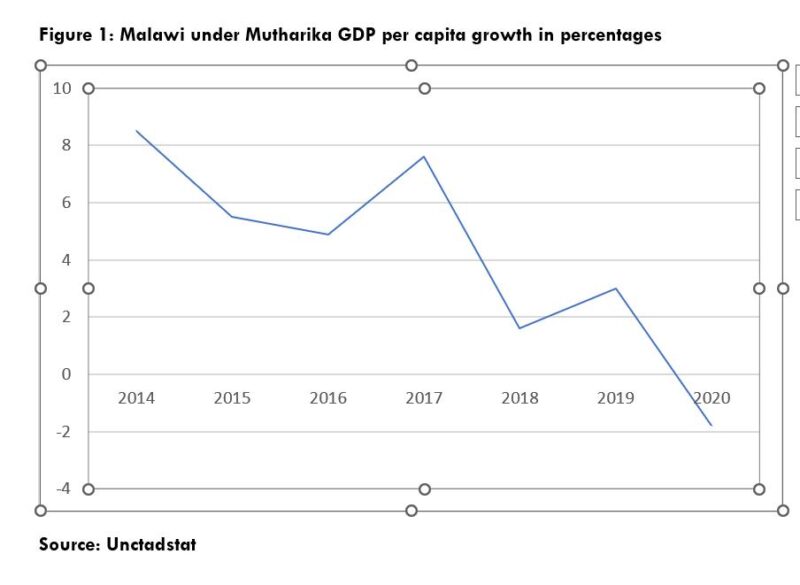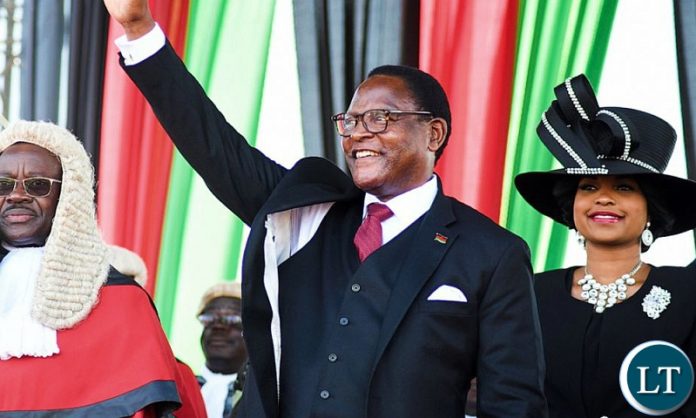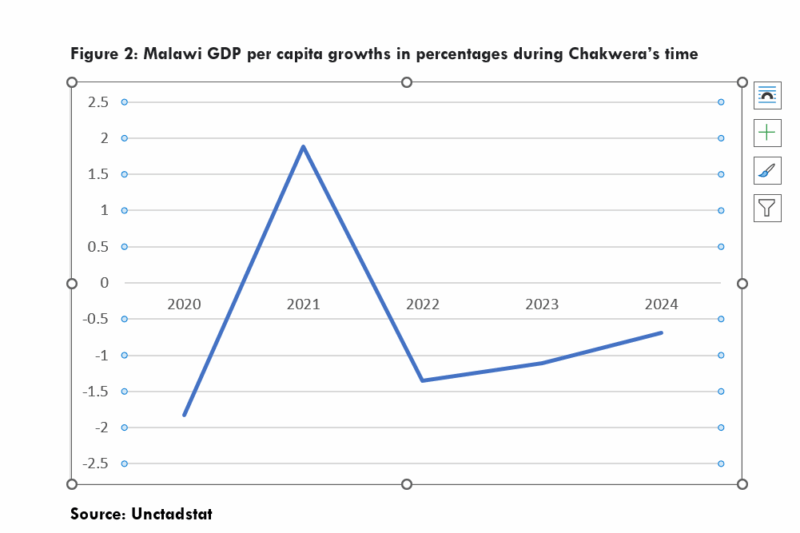By Edward Chisanga
On 25 February 2024, The Catholic Bishops of Malawi issued a pastoral letter entitled: “The sad story of Malawi.” The letter addressed several issues of concern to the country in general, and Malawians in particular. It complained about fruitless engagement with the State President, corruption, careless expenditures, partisan and corrupt judiciary, evil of religious intolerance, and other familiar issues. The letter also complained that leaders have resorted to being salesmen of words, with no serious attempt at keeping any promises.
Former President Mutharika is winning
In Africa, it’s a familiar and repeated story of unfulfilled promises. When campaigning for office, the president before Lazarous Chakwera, Peter Mutharika promised economic recovery. In today’s campaign for the 2025 presidential elections, he repeats the message of economic recovery when his face book page reads that his decision to contest the 2025 is not motivated by personal gains but by a strong desire to work with Malawians in rescuing the country from what he described as “Five years of despair and chaos. He assured Malawians that this team is posed to roll out solutions aimed at transforming the country as soon as it assumes office.”
Another newspaper reports, “Mutharika defies critics, promises economic revival ahead of elections. Among the key issues he highlighted were food insecurity, poor road infrastructure, and the crumbling state of the economy under the current administration.”
Mutharika’s self-approbatory campaign statements motivated me to find out more about him. I began with his presidency from 2014-2020. I thought his foregoing statements were founded on strong past economic performance when he was president, and that he must be voted back to accomplish the good work that he was deprived of finishing when he lost in 2020.
Instead, I found that under his rule, GDP per capita growth dwindled significantly in similar fashion as GDP. But I prefer to discuss GDP per capita because of its direct relationship with individual households in Malawi. The line in Figure 1 below shows steep erosions of GDP per capita, even with an episode of minus 2% in 2020 when he was leaving office.
Malawians must ask, “Is there morality, integrity, gentleman ship and accountability in Mutharika publicly ignoring the glaring point that, by presiding over erosion of GDP per capita growth from a strong 8% in 2014 to minus 2% in 2020, and pressing on coming back to State House, he’s is being dishonest to Malawians?”
It’s unimaginable that Mutharika, having left the economy in poor state, with the purchasing power of each Malawian almost non-existent, can today claim that he must come back to restore what he helped destroy. The problem is that, despite this cataclysm, and infamous economic record, Mutharika is winning back the presidency this week because, African citizens seem to manage their own affairs in the strangest way.
Often, the destruction of the economy by politicians is eclipsed or obscured by cheap popularity and free handouts given to potential voters. African voters are often driven by short rather than long-term objectives, although this isn’t always true because recent history shows that even with handouts, voters went against the handout giver in some countries.

Except the stomach, perhaps issues of the economy are simply too complicated for an average African. That’s why it occupies a weeny part of their overall affairs while handouts take the spotlight. Mutharika may be remembered by what and how much he freely gave Malawians in the hand. Not the economic destruction he caused that has what today, he refers to as “The crumbling state of the economy under the current administration.”
President Chakwera is losing elections
In 2020 when he took over government from Mutharika, Chakwera campaigned and won on promises of, among other things, restoring the dwindling economy that he inherited from his predecessor. Yet, the economy expressed in GDP growth in general, and in particular GDP per capita, that I prefer to use in this paper, sunk much more deeply in the abyss than during Mutharika’s time.
In Mutharika’s rule, the worst performance was from 2018-202when GDP per capita growth tumbled from about 7 7% in 2017 to minus 2% in 2020. But follow Figure 2 below and you’ll see that Chakwera failed lamentably; to raise the fallen performance he inherited from minus 2%. Instead, he significantly drove GDP per capita down to less than minus 0.5 in three consecutive years (2022, 2023, 2024). Meanwhile, for 2021, it’s difficult to tell whether rise in growth from 2022-2021 shown was driven by Chakwera’s efforts or was simply spill over from the previous government.
This statistic clearly reveals something extremely troubling about purchasing power in Malawi. I leave the interpretation of this statistic to economists, as I’m not. Before I do that, let me include numbers of Malawi’s actual GDP per capita in dollar values, on which the foregoing growth is founded. This will make my message on growths clearer.
Table 1 below shows Malawi’s GDP per capita in US$ at current prices for the period 2014-2024. You can see how infinitesimal and hopeless they’re for a big population of 22 million people. Malawi’s population is almost the same as Zambia’s but Zambia’s annual GDP per capita is almost twofold. But Zambia’s GDP per capita too, is infinitesimal relative to some African countries. From these absolute numbers of GDP per capita, it’s important to know that most African countries’ economies are what Professor Lumumba refers to as, “Micky Mouse economies.” When you hear that GDP has grown, this growth is based on very small numbers, thereby explaining why the continent is poor.
|
2014 |
2015 |
2016 |
2017 |
2018 |
2019 |
2020 |
2021 |
2022 |
2023 |
2024 |
|
| Malawi |
437 |
481 |
406 |
496 |
533 |
581 |
603 |
617 |
607 |
598 |
513 |
| Zambia |
1,679 |
1,272 |
1,218 |
1,485 |
1,464 |
1,259 |
948 |
1,128 |
1,446 |
1,331 |
1,214 |
Source: Unctadstat
Concluding
So, even if Malawi’s GDP per capita grows on an annual basis of 15%, the fact that it’s based on small GDP numbers in dollar values means it will take long before real benefits begin to show. Growth must be founded on robust numbers in order to make a big difference. African economies are poor because their economies manifested in GDP and GDP per capita in dollar values are too small. Growth on small numbers yields almost nothing in terms of benefit to the population.
Back to Malawi, this poor economic performance, juxtaposed by other bad factors going on in the country make life unbearable in the country. Malawi has become miserably poorer under stubborn Chakwera. Like most African leaders, he’s distinguished with cracking down on political opponents. And dissenting voices.
A national paper of April 15 2024 reports, “As Malawi inches closer to the highly anticipated general elections in September 2025, the administration of president Lazarous Chakwera and his ruling party, the Malawi Congress Party, has ramped up its efforts to suppress political opposition and curtail dissent.” Party (MCP), has ramped up its efforts to suppress political opposition and curtail dissent. A growing number of political figures, activists, and journalists have found themselves victims of political arrests in what critics are calling a deliberate crackdown on democratic freedoms and opposition voices.
But, Chakwera, being a student of theology, must know that there’s one invisible opponent he cannot suppress. And, that too, is the one that will mercilessly unseat him to save His people. For He says, in Psalm 72.4, “May He vindicate the afflicted of the people, Save the children of the needy and crush the oppressor.”




The Problem with Malawi is same problem we have in Zambia…No serious opposition and Chakwera is coming back…just like in South Africa….ANC will rule forever because apart from the DA …the remaining opposition parties are just jokers……..We need strong and serious opposition….not having morons like Nakachinda and Emmanuel Mwamba in opposition